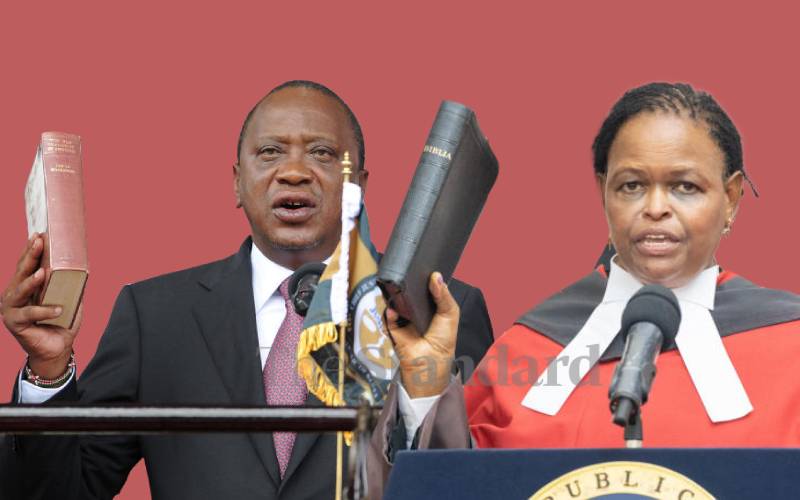×
The Standard e-Paper
Fearless, Trusted News

President Uhuru Kenyatta and CJ Martha Koome. [File, Standard]
There is no doubt that the High Court decision on Thursday on the six remaining judges is monumental. For the unaware, the Judicial Service Commission, in the exercise of its powers under Articles 166 and 172 of the Constitution, recommended 41 judges for appointment by the President.